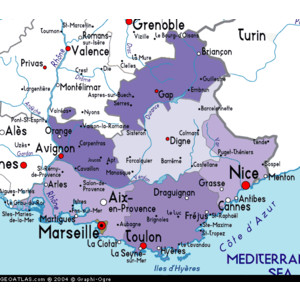 I reject you, I reject you not . . .
I reject you, I reject you not . . .
Now that I have a finished manuscript, the next step on the road to publication, the search for an agent, has begun. This is all new to me, and I thought others might be interested in the process — and perhaps willing to share some of their own stories about the publishing end of the writing business.
In that spirit, here’s a log of how the process is going for this writer.
January, 2012: Writer’s Digest Pitch Slam
I pitched to six agents at the Writer’s Digest Conference Pitch Slam. Five expressed interest in the book.
October 22, 2012: Queries Emailed
Finally finished manuscript. Sent query letters out to those five agents, with either the first three chapters or the first fifty pages, depending on what they’d requested.
Dec 17, 2012: First Response
Dear Ms. Brown,
Thank you for the opportunity to consider your opening chapters. Regretfully, I wasn’t as pulled in by them as I had hoped, so I don’t feel I’d be the right agent for your book. I wish you every success with this book and all of your endeavors.
All the Christmas Spirit is sucked out of the room. Rejection #1.
January 9, 2013: Follow-Up Emails
At the beginning of January, I sent out follow-up emails to the agents I hadn’t heard from, and received the following responses:
January 9, 2013 1:13 PM: First evidence of the agency flux I’d read about
Thank you for your email. Please note that xxx xxxx has left xxxxxxx Agency to pursue new opportunities. If you wish to query another agent, please consult our website at, www dot agency dot com, for contact information.
I immediately researched and queried another agent at this agency. Who promptly rejected me. (I know, not me, the work. I’m working on making that not feel like the same thing.) See Rejection #2, below.
Two hours later . . .
January 9, 2013 3:31 PM: First encouraging response (i.e. not a rejection)
Hi, Jennifer,
It’s being read right now, thanks for checking in. I should have a report on it in a couple of days.
Breath-holding ensues. Eight minutes later . . .
January 9, 2013 3:39 PM: Rejection #2
Dear Jennifer,
It’s true, I am one of the agents here at xxxxxxx who love cozies. That said, I just don’t think I am the right partner to take this particular project forward. Based upon your description, I just wasn’t feeling the level of “jazzed up” you’d want in a prospective agent.
Sorry to send a disappointing response. I wish you all the best of good fortune with your launch mystery. You might want to query my colleague xxx xxxx.
Thank you for the opportunity.
I immediately queried the colleague mentioned, who, a few days later, rejected the work. Not me, the work. I believe that, I really do. See Rejection #3, below.
January 11, 2013: First request for full manuscript (from sender of encouraging response)
Dear Ms. Brown:
Thank you very much for the query and sample chapters of Murder on the Cote D’Azur. We were very impressed with the work you sent and would like to see a full manuscript. [The writer went on to point out some strengths and weaknesses in the submitted chapters, which was a level of detail I didn’t expect at this point – it was very encouraging to feel that the chapters had been carefully read and thought about.] We look forward to reading more of the story. Have a great day.
Jumping up and down and screaming ensues. Suddenly understand Sally Field’s Oscar moment, then remind myself: “They like the work. The work.” And that means much more than them ever liking me.
We certainly did have a great day – and a few glasses of champagne!
Two days later, the humbling moments continued:
January 13, 2013: Rejection #3 (a bit easier to take with one “yes” under our belts)
Dear Ms. Brown,
Thank you for allowing me to consider your work.
Regretfully, this particular project is just not right for me.
I wish you all the best in your literary endeavors.
After querying three different agents at this one agency, finding one had moved on, and being rejected by two others, I guess I can say this is not the agency for me. But at least I was thorough.
I’d like to state my appreciation for the kindly-worded rejections (which they all were). Even if the phrases are stock euphemisms for “don’t ever send your execrable prose to us again,” it’s still nice to be let down gently.
I would love to hear what other writers out there are doing in pursuit of publishing. As for me, I’m pulling together a new list of agents to query and trying not to spend any time wondering when – or what – I will hear from the agent who is now reading the full manuscript. Instead, I’m taking that one request as a vote of confidence, and focusing on sending out more queries.
And I’m working on the separation of self and work in regards to rejection. Maybe not so much with acceptance.
 I was given an introduction to an agent through a friend of a friend, so I sent out the first three chapters and very quickly got a response asking for the full manuscript. Trying not to get my hopes up too much, I sent it off. Just a few weeks later, I received this response:
I was given an introduction to an agent through a friend of a friend, so I sent out the first three chapters and very quickly got a response asking for the full manuscript. Trying not to get my hopes up too much, I sent it off. Just a few weeks later, I received this response:






